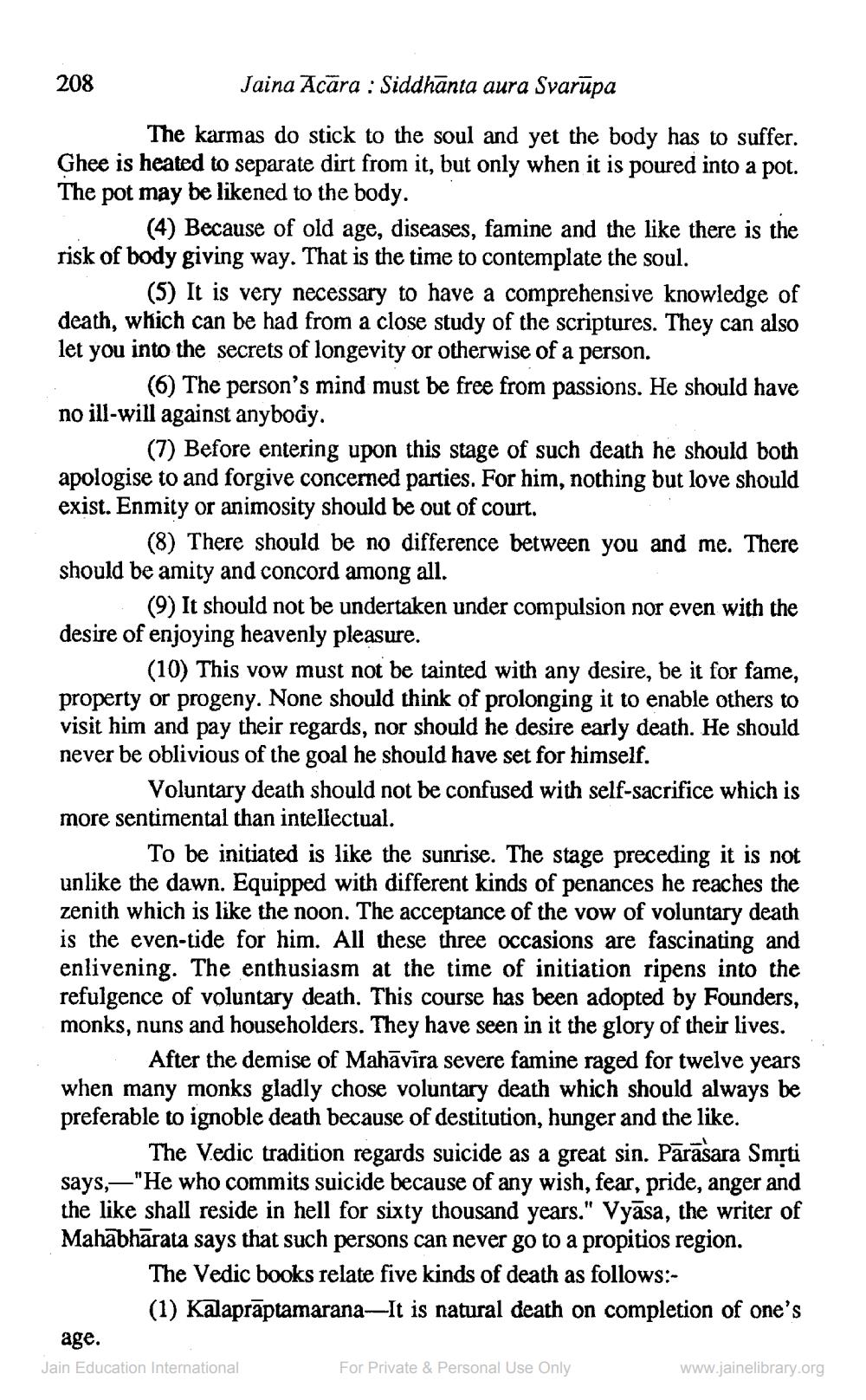________________
208
Jaina Acara : Siddhanta aura Svarūpa
The karmas do stick to the soul and yet the body has to suffer. Ghee is heated to separate dirt from it, but only when it is poured into a pot. The pot may be likened to the body.
(4) Because of old age, diseases, famine and the like there is the risk of body giving way. That is the time to contemplate the soul.
(5) It is very necessary to have a comprehensive knowledge of death, which can be had from a close study of the scriptures. They can also let you into the secrets of longevity or otherwise of a person.
(6) The person's mind must be free from passions. He should have no ill-will against anybody.
(7) Before entering upon this stage of such death he should both apologise to and forgive concerned parties. For him, nothing but love should exist. Enmity or animosity should be out of court.
(8) There should be no difference between you and me. There should be amity and concord among all.
(9) It should not be undertaken under compulsion nor even with the desire of enjoying heavenly pleasure.
(10) This vow must not be tainted with any desire, be it for fame, property or progeny. None should think of prolonging it to enable others to visit him and pay their regards, nor should he desire early death. He should never be oblivious of the goal he should have set for himself.
Voluntary death should not be confused with self-sacrifice which is more sentimental than intellectual.
To be initiated is like the sunrise. The stage preceding it is not unlike the dawn. Equipped with different kinds of penances he reaches the zenith which is like the noon. The acceptance of the vow of voluntary death is the even-tide for him. All these three occasions are fascinating and enlivening. The enthusiasm at the time of initiation ripens into the refulgence of voluntary death. This course has been adopted by Founders, monks, nuns and householders. They have seen in it the glory of their lives.
After the demise of Mahāvīra severe famine raged for twelve years when many monks gladly chose voluntary death which should always be preferable to ignoble death because of destitution, hunger and the like.
The Vedic tradition regards suicide as a great sin. Parāsara Smrti says,—"He who commits suicide because of any wish, fear, pride, anger and the like shall reside in hell for sixty thousand years." Vyāsa, the writer of Mahābhārata says that such persons can never go to a propitios region.
The Vedic books relate five kinds of death as follows:
(1) Kalaprāptamarana—It is natural death on completion of one's age. Jain Education International For Private & Personal Use Only
www.jainelibrary.org




